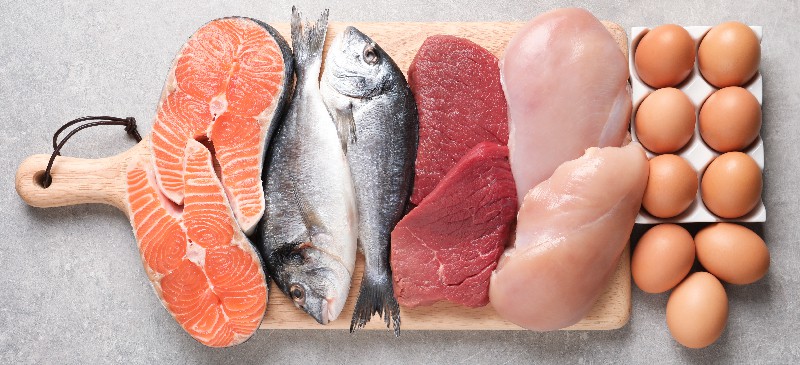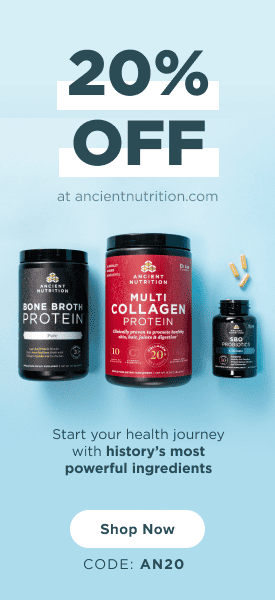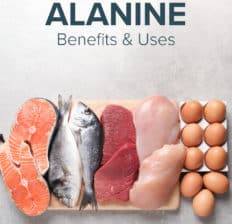This Dr. Axe content is medically reviewed or fact checked to ensure factually accurate information.
With strict editorial sourcing guidelines, we only link to academic research institutions, reputable media sites and, when research is available, medically peer-reviewed studies. Note that the numbers in parentheses (1, 2, etc.) are clickable links to these studies.
The information in our articles is NOT intended to replace a one-on-one relationship with a qualified health care professional and is not intended as medical advice.
This article is based on scientific evidence, written by experts and fact checked by our trained editorial staff. Note that the numbers in parentheses (1, 2, etc.) are clickable links to medically peer-reviewed studies.
Our team includes licensed nutritionists and dietitians, certified health education specialists, as well as certified strength and conditioning specialists, personal trainers and corrective exercise specialists. Our team aims to be not only thorough with its research, but also objective and unbiased.
The information in our articles is NOT intended to replace a one-on-one relationship with a qualified health care professional and is not intended as medical advice.
Top 5 Alanine Benefits & Uses (+ Side Effects, Interactions & Dosage Info)
March 29, 2023

Alanine, also called L-alanine or alpha-alanine (α-alanine), is among the 11 “non-essential” amino acids that your body is capable of synthesizing on its own.
What is L-alanine good for? It aids in many metabolic processes and provides energy for your muscles, brain and central nervous system.
Some of the conditions this amino acid can help treat include fatigue, low blood sugar (hypoglycemia), liver disease, high cholesterol, enlarged prostate (benign prostatic hypertrophy) and many others.
What Is Alanine?
Alanine is a non-essential amino acid — like citrulline — that the body can produce from other amino acids, without needing to acquire it from food sources. It’s usually found in high levels in the bloodstream of most people and is one of the most concentrated amino acids in protein foods.
Among all amino acids, it is one of the most widely used for protein construction. It is considered a glucogenic amino acid and is synthesized from pyruvate and branched-chain amino acids (BCAAs), including valine, leucine and isoleucine.
What does alanine do for your body? What is the alanine function?
Some of the most important functions include:
- Playing a role in converting sugar (glucose) into energy — it is involved in the glucose-alanine cycle, which takes place between tissues and the liver
- Processing B vitamins
- Breaking down tryptophan and vitamin B6
- Helping with acid metabolism
- Increasing immunity
- Facilitating the metabolism of tryptophan
- Forming carnosine, anserine and of pantothenic acid (vitamin B5)
- Providing the brain and central nervous system with energy
- Helping build and repair muscle tissue
- Helping the liver detoxify the blood
- Protecting cells from oxidative damage
- Helping maintain normal cholesterol levels
L-Alanine vs. Beta-Alanine
L-alanine is somewhat different than beta-alanine (β-alanine). Beta-alanine is a modified version of the amino acid and a substrate of carnosine, which has been shown to help prevent fatigue during high-intensity exercise.
Studies show that carnosine acts as a buffer to prevent muscle cells from becoming acidic, thereby decreasing muscle fatigue during exercise. This is why β-alanine is fast becoming a popular aid in sports performance.
A typical daily dose of beta-alanine is between four to six grams, taken in divided doses two to three times daily for a period of about two weeks. One thing to be aware of is that it can cause a tingling sensation of the skin or itchy lips, which is generally harmless and temporary.
Health Benefits
1. Can Help the Body Use Glucose (Sugar)
Alanine is sometimes used to manage blood sugar levels in people with diabetes, since it plays a role in helping the body use glucose and preventing low blood sugar (also called hypoglycemia). The liver absorbs it and converts it into pyruvate. This process is important for regulating the use of glucose and blood sugar management.
2. Helps Maintain Healthy Cholesterol Levels
There’s evidence that this amino acid can have a natural cholesterol-lowering effect, especially when used in combination with other amino acids like arginine and glycine. These three are commonly included in amino acid compound tablets.
In some studies, daily intake levels of alanine between 200 milligrams and 600 milligrams daily have been shown to be effective for cholesterol management.
3. Provides Energy During Periods of Fasting
As a glucogenic amino acid, alanine can be converted in the liver by the catalytic action of glutamate-pyruvate transaminase (also known as alanine transaminase). Alanine plays a role in the conversion of glucose in the liver so it can be taken up by the muscles and used for energy, including during periods of fasting/calorie restriction when muscle proteins can be broken down.
This means that consuming enough levels of this amino acid may help halt muscle wasting.
4. May Help Enhance Physical Performance and Build Muscle
This non-essential amino acid serves as an important source of energy for muscles and the central nervous system. The liver can convert L-alanine into glucose as needed for muscle fuel, including during exercise.
Because it is used to construct proteins and build muscle mass, it can support physical performance and recovery. Athletes who train at high intensity levels sometimes supplement with this amino acid to provide their muscles with fuel and support protein biosynthesis.
It may also be helpful for preventing fatigue and supporting higher endurance/stamina. Another benefit when it comes to staying active is that it can help support physical fitness among those susceptible to cardiovascular diseases.
5. Supports Prostate Health
One part of the body that has high concentrations of this particular amino acid is prostate fluid. Alanine may help protect the prostate gland from enlargement and reduce pain associated with prostate problems, such as pain during urination, pain due to swelling and symptoms caused by prostate cancer.
Some studies have also found that it provides protection from pro-inflammatory cytokine-induced apoptosis and enhances antioxidant generation in cells.
Deficiency Symptoms and Causes
Because it is non-essential, alanine deficiency is extremely rare, as most people’s bodies synthesize enough. However, people who are very active, ill and/or stressed; who eat low-protein diets; or who are malnourished may benefit from supplementing with this amino acid to prevent symptoms of deficiency.
Adults with liver disease or diabetes may also be susceptible to having low levels, in which case supplements of this amino acid might be helpful.
Some signs and symptoms of low alanine levels can include:
- Fatigue
- Poor endurance and strength
- Weakness and muscle atrophy (shrinkage)
- Dizziness and faintness due to fluctuating blood sugar levels
- Moodiness
- Changes in appetite
Foods and Supplements
Even though your body can make the alanine that it needs, it’s still beneficial to get additional non-essential amino acids from food sources.
What foods contain alanine?
It is found in a wide variety of protein foods. The top foods with this non-essential amino acids include:
- Poultry, like chicken and turkey
- Grass-fed beef and meats
- Protein powders
- Fish and seafood
- Eggs
- Soybean products (like tempeh, organic edamame, etc.)
- Yeasts
- Legumes and beans
- Whole grains, like wheat germ, quinoa, rice, buckwheat, oats, etc.
Alanine Supplements
In supplement form, it is commonly sold as a free-form, powdered amino acid. Alanine uses in supplement form include treating conditions like prostate pain, fatigue, low blood sugar and high cholesterol. In some cases doctors use intravenous alanine to treat certain health conditions.
Amino acids like this one are available as single amino acids or in combinations. Some multvitamins and food supplements contain all 20 essential and non-essential amino acids. Protein powder supplements, like whey protein, collagen protein, hemp protein, pea protein or brown rice protein, offer most or all essential amino acids that your body needs.
How to Take and Dosage
In powder form, the suggested use of alanine is between 1.1 to 2.3 grams (about 1/4 to 1/2 teaspoon) daily, taken between meals or as recommended by your health care professional.
Doses between 20 to 40 grams per day are safely used to help manage blood sugar levels in people with diabetes, such as by preventing very low blood sugar due to too much insulin. If treating other conditions, such as high cholesterol, it’s best to work with a health care provider to determine the best dose.
Recipes
Below are healthy recipes containing a good amount of protein and therefore alanine and other amino acids:
- Protein Shake Recipes
- Sweet & Savory Meatballs
- Slow Cooker Beef Stew Recipe
- Blackened Salmon Recipe with Creamy Avocado Dressing
- Cajun Blackened Chicken Recipe
- Turmeric Eggs
Risks and Side Effects
L-alanine supplements have the potential to increase blood sugar levels, which can be problematic for people with diabetes if their blood sugar levels are already normal or too high. People with diabetes should work with their doctors to monitor their blood sugar levels before taking alanine supplements.
Always read dosage directions carefully when starting any new supplement, including amino acids. Taking high doses of amino acids can possibly cause digestive issues, skin itchiness and tingling, and be hard for the kidneys and liver to process.
Final Thoughts
- Alanine is a non-essential amino acid, which means your body is capable of producing the alanine you need from other amino acids. While eating certain foods isn’t required to get the bare amount you need, higher intakes may offer some benefits.
- Alanine functions include converting sugar (glucose) into energy, building and repairing muscle tissue, helping the liver detoxify the blood, protecting cells from oxidative damage, helping maintain normal cholesterol levels, forming proteins and enzymes, and more.
- Benefits of consuming more alanine may include helping the body use glucose, helping lower cholesterol, supporting maintenance of muscle mass, enhancing physical performance, supplying the body with energy during periods of fasting and supporting prostate health.
- Eating a well-balanced, healthy diet that includes enough protein foods like meat, fish, poultry, eggs, legumes, wheat germ, whole grains and yeasts will provide you with alanine.













